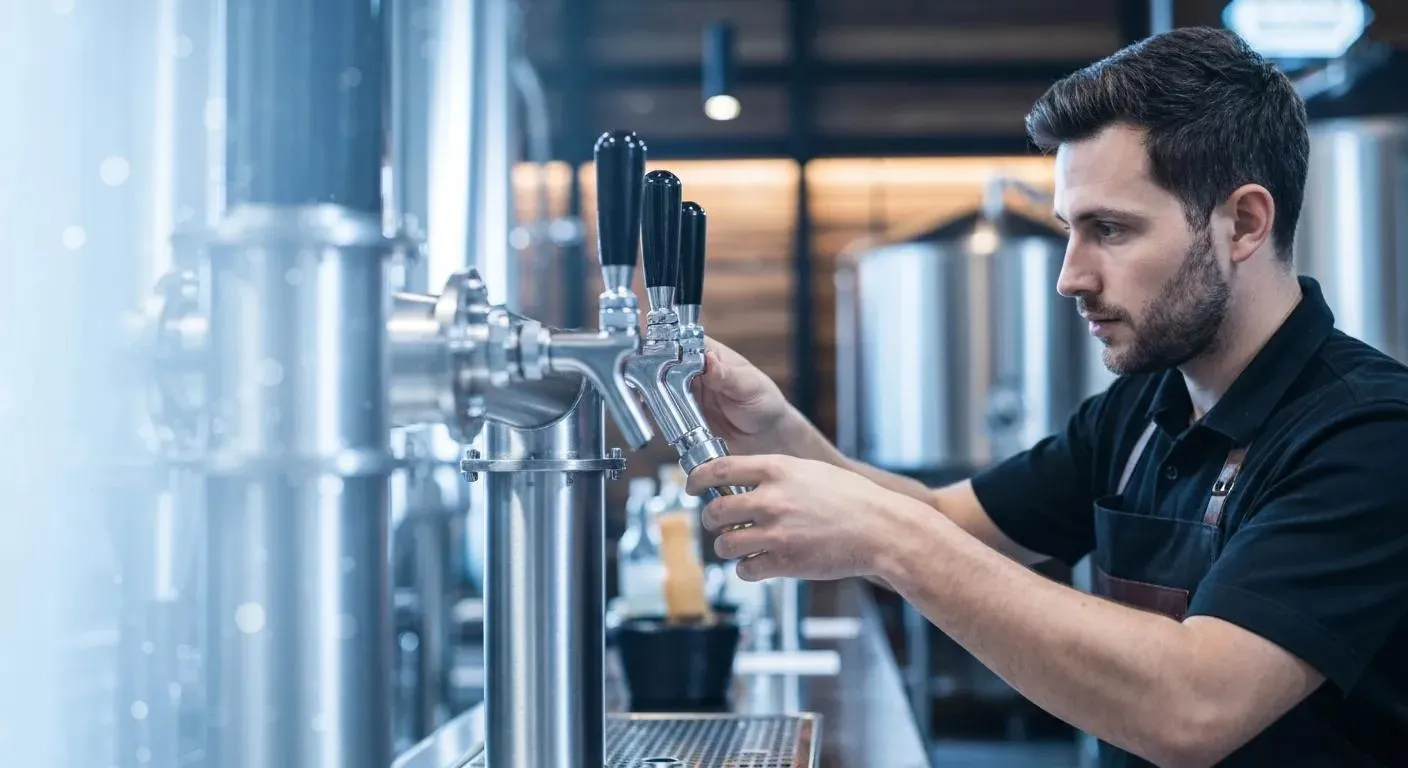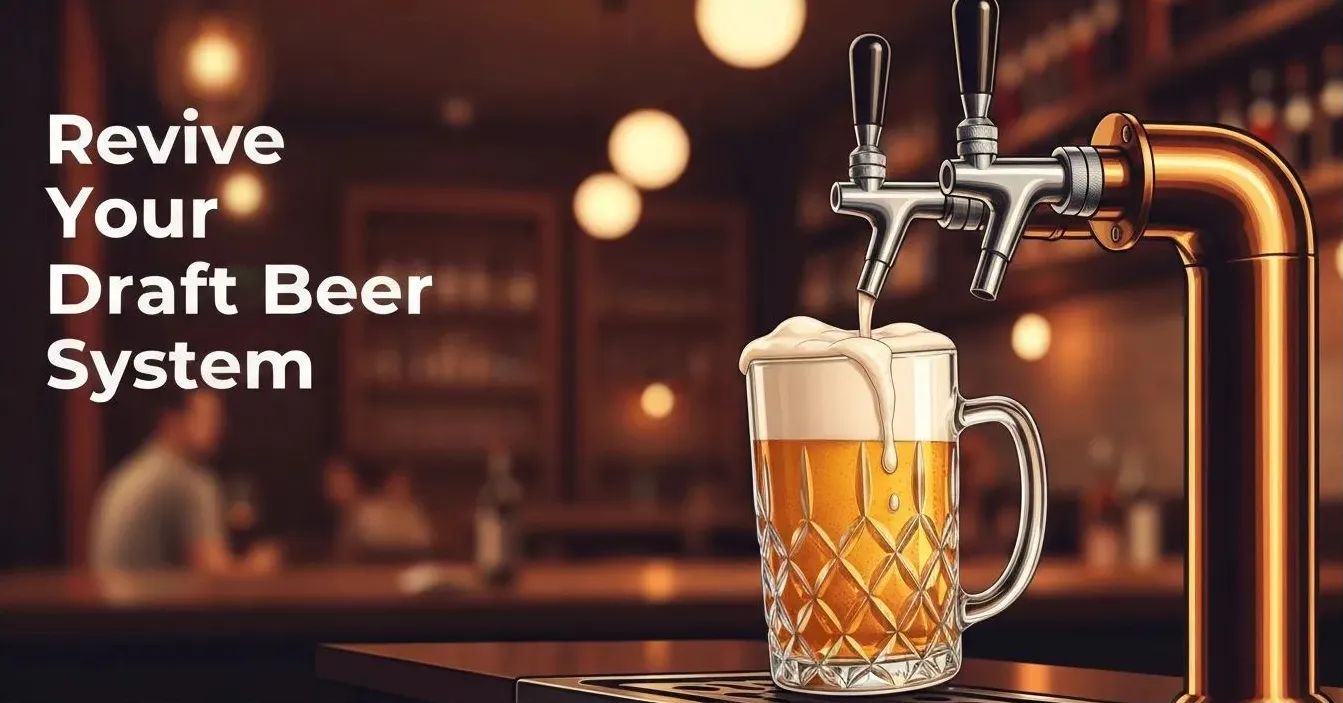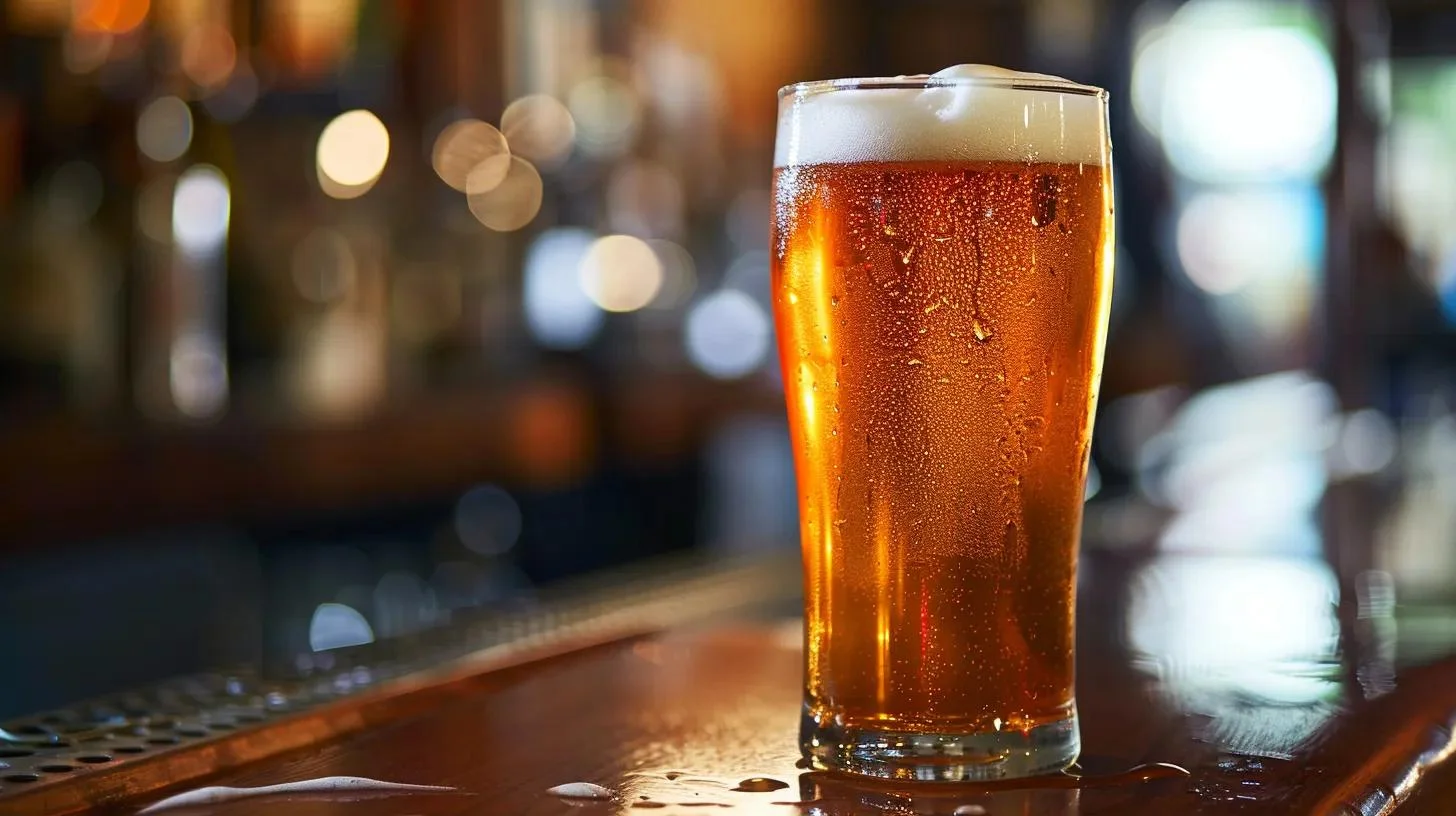Beer Glass Types: A Craft Brewers Guide to Beer Glassware

Whether you're just beginning your journey into learning about beer or you're a seasoned pro, every beer lover needs to know about the different beer glass types.
Many people don't realize it, but there's a wide variety of beer glasses to drink from. Knowing which type of glass you should pair with which beer can help enhance your overall drinking experience.
Check out this craft brewer's guide to learn about the different types of beer glassware.
1. Traditional Pint

16 oz Pint of Goodlife Beer
Probably the most popular type of beer glass out there is the traditional pint glass. This is the beer glass of choice in both restaurants and bars.
Restaurants and bar owners tend to favor this glass because it's relatively inexpensive, and it's also very easy to store and clean. It also makes for an easy pour from the tap.
The traditional pint is a 16-ounce glass that is slightly wider at the mouth than it is at the base. When you travel, you may notice that pint glasses vary slightly from country to country.
In addition to American pint glasses, you can also find English, Irish, and German pint glasses. However, the two most popular pint glasses are definitely American and English.
The American pint glass is also sometimes referred to as the shaker pint glass. While the traditional American pint glass can hold 16 ounces of beer, the English pint glass holds 20 ounces.
This is a run-of-the-mill, all-purpose glass that every serious beer drinker should have in their collection.
2. Pilsner

The Pilsner Beer Glass
As the name suggests, the pilsner beer glass is traditionally designed for pilsner beers.
For those who don't know, a pilsner is a type of lager. It gets its name from the city of Pilsen, a city in the Czech Republic. The beer was first produced here by a brewer named Joseph Groll.
This is a medium to medium-full-bodied beer that is characterized by its tangy hops that floral aromas and a bitter, crisp finish. The hallmark of a fresh pilsner beer is a dense, white head, which the pilsner beer glass helps to produce.
In addition to being used for pilsner beers, the pilsner beer glass is also commonly used for lighter beers such as blonde ales and lagers.
These glasses are quite popular in both America and Europe, and they're characterized by their slim shape with a slightly wider mouth. Typically, pilsner glasses hold between 12 to 14 ounces of beer, making them just a bit smaller than pint glasses.
The height of the pilsner glass is also worth taking note of, as it's meant to showcase the golden hue of the beer. It's also similar to a champagne glass in that its slim frame helps it to enhance the clarity of the beer's bubbles.
3. Beer Mug

A pair of glass beer mugs
Beer mugs come in a variety of different shapes and sizes. If your main concern is keeping your beer cold, then this is the glass for you.
Strong and sturdy, the beer mug is suited to hold a wide range of beers. Thanks to its thick glass and handle, the warmth from your hands won't transfer to the beer, ensuring that the drink stays ice cold for an extended period of time.
Plus, the robust handle allows you to maintain a firm grip when toasting or cheering.
Many beer enthusiasts like to keep a beer mug in the freezer, as this allows you to give the beer a frosted effect while ensuring the beer tastes extra crisp.
While you can find beer mugs in a variety of different settings, they're most commonly found in pubs.
4. Thistle and Tulip Glass


Also known as a Belgian glass, the tulip glass loosely resembles a snifter or goblet. This type of beer glass is characterized by a rounded bowl that sits atop a small stem.
The beer glass tapers at the top in order to capture the aroma of the beer as well as to promote the flavor of Belgian ales and other hoppy, malty beers.
Tulip glasses pair best with strong beers that have ample hops. These include:
- Belgian ales
- Belgian IPAs
- Double/Imperial IPAs
- Scotch ale
- American wild ale
- Saison
- Fruit lambic
- Gueuze
The modified version of the tulip glass is the thistle glass. The shape of this glass is meant to resemble the Scottish national flower (the thistle). This glass looks like a stretched-out version of the tulip glass, but with smaller curvature at the lip.
The thistle glass is characterized by its bulbous bottom and short stem, as well as its elongated top section. Thistle glasses pair best with Scotch ales, barley wines, and double IPAs.
5. Weizen

The word "weizen" means wheat in German. Weizen glasses are sometimes confused with pint glasses and pilsner glasses, but there are important distinctions.
These glasses feature thin walls as well as a lot of length in order to showcase the brilliant colors of wheat beers. The design of the glass also helps to lock in the signature clove and banana aromas of wheat beers, and it allows for a thick, fluffy beer head.
In addition to pairing well with wheat beers, Weizen glasses also pair well with white ales. The thin construction of the glass also makes it easy for you to garnish the rim, although it's recommended to avoid fruit garnishes with high acidity levels.
This is because they can ruin the head. Weizen glasses are also quite large in size, being able to hold 17 ounces of beer.
6. Stange Glass

The stange glass is also known as the rye glass. This is a tall and slender glass that gets its name from the German word for pole.
This is due to its straight, narrow, and cylindrical appearance. Much like a champagne flute, the design of the rye glass allows you to preserve carbonation while illuminating the soft hop and malt aromas of the beer.
This glass pairs best with delicate beers, such as lambics, bocks, Kolsch, Gose, rye beers, or Czech pilsners.
Generally, these beer glasses can hold 6.5 ounces of liquid, although you can find them in larger sizes.
7. IPA Glass

The IPA glass is relatively new to the market, as it just started to become popular in bars around 2013.
This glass is characterized by its series of ridges at its base, which helps to aerate hoppy beers and release distinct aromas. Meanwhile, the tall, tapered, and slender bowls concentrate and direct the hop aromatics towards your nose.
Some IPA glasses are even etched at the bottom in order to encourage a steady stream of cascading bubbles and help release carbonation. The typical IPA glass can hold 19 ounces of liquid, and it's best paired with IPAs of all varieties.
8. Goblet/Chalice

If you want to enjoy your beer in an extravagant manner, then a goblet or chalice is the glass for you.
Traditionally, these glasses feature a long and thick stem that transitions into a wide bowl. While the words chalice and goblet are often used interchangeably, they are slightly different from one another.
Chalices have thicker glass walls than goblets do, and they also weigh more. However, both types of glasses have wide mouths that are ideal for taking big gulps of beer. Chalices and goblets pair well with heavy malt beers, including German bocks and Belgian ales.
9. Snifter

Snifter Beer Glass
Snifters are the glass of choice among brandy and cognac drinkers, but they're also quickly working their way into the hearts of beer enthusiasts.
This type of glass is characterized by a large bowl that sits atop a footed stem. The size and shape of the glass make it easy for you to swirl your drink, resulting in more prominent aromatics while drinking.
Most beer connoisseurs will discourage you from filling your drink all the way to the brim, as this can inhibit the fragrance and taste. Snifters pair best with big boozy beers such as barley wines and barrel-aged stouts.
10. Ale Glass

Also known as a nonic pint glass, the ale glass strongly resembles the American pint glass.
However, the main distinction is that there are about two inches of bulge below the mouth of the glass. The pronounced curvature prevents the rim from chipping, and it allows for a firmer grip on the glass, making it easier for cleaning and stacking.
As the name implies, ale glasses are best suited for drinking ales, as well as stouts and IPAs.
11. Stout Glass

As of 2014, stout officially has its own glass.
This glass came into being thanks to a collaboration between Longmont, Colorado's Left Hand Brewing Company and Newport, Oregon's Rogue Ales and Spirits. Before they decided on this glass design, hundreds of different iterations were considered.
The glass design aims to elevate the experience of drinking a stout beer by accentuating the chocolate and coffee notes while still being functional.
The design of the stout glass is characterized by an indented base, angled shelf, and a narrow mouth that promotes head retention.
As the name suggests, it pairs well with all varieties of stout beers.
Beer Glass Types: Are You Ready to Expand Your Collection?
As you can see, there are a lot of different beer glass types out there. Now, it's time to start adding to your collection.
Also, if you're looking to learn the draft beer system fundamentals, be sure to check out this beginner's guide.



